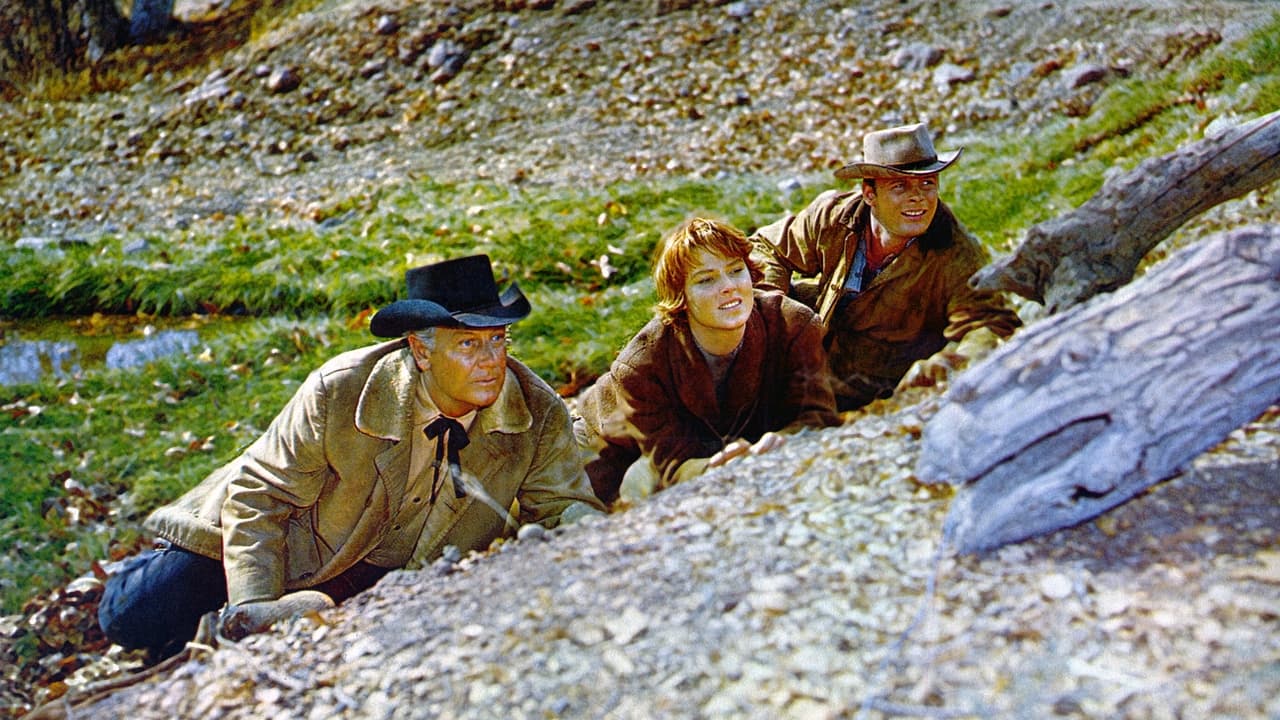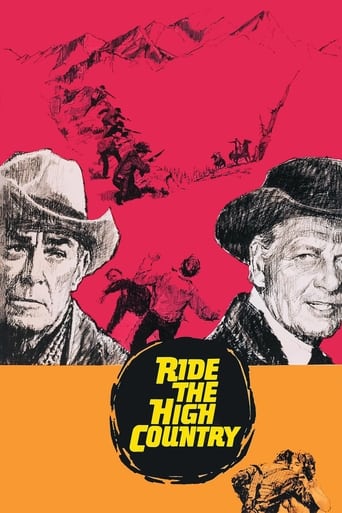

Wonderfully offbeat film!
... View MoreStylish but barely mediocre overall
... View MoreToo much about the plot just didn't add up, the writing was bad, some of the scenes were cringey and awkward,
... View Moreif their story seems completely bonkers, almost like a feverish work of fiction, you ain't heard nothing yet.
... View MoreThis is an overlooked classic Western that helps cement director Sam Peckinpah's career. Down and out, strapped for cash, two former lawmen Steve Judd (Joel McCrea) and Gil Westrum (Randolph Scott) are hired by a bank to deliver a huge amount of gold from a mining camp in the high Sierras down to the bank. More or less swan songs for McCrea and Scott as their long lasting careers wane. To be exact, this is the final effort of Scott. The two old friends wrestle with ethics as one wants to take the proceeds and run, while the other intends to finish the assignment agreed to. The action scenes are full of realism and the two stars turn in memorable performances. The sweeping vistas are terrific.Rounding out the cast: Mariette Hartley, R.G. Armstrong, Ron Starr, James Drury, L.Q. Jones and Warren Oates.
... View MoreMultiple themes unfold in this narrative. Age versus youth; innocence versus depravity; greed versus poverty; puritanism versus immorality; crime versus integrity. It is packed with incident, but seems slow. Lasts only 90 minutes but seems much longer. The acting by Scott and McCrea was OK, but not remarkable. The roles were undemanding. Mariette Hartley was excellent, and she had a very appealing and attractive presence. Ron Starr receives a lot of criticism on this site, but seemed to be doing nothing wrong. He wears a disgruntled expression, but that's part of his role. Although there are several fist-fights, as well as shoot-outs, raging drunkenness, and the girl's unlamented father is shot (off-screen), it still doesn't give the impression of a specially violent movie, at least not in comparison with some of Peckinpah's later efforts.The wedding scene was demented. The face-off with the bad guys, anticipating the ending of The Wild Bunch, at the end of the story strikes me as totally improbable and utterly unrealistic, rather like the wacky race with the camel in the opening minutes. Do camels really run faster than horses ? Much of the rest of the film seemed real. This may be due to the photography and the calm scenery. A strange mixture.
... View MoreRide The High Country is certainly one of the best Post War to Hippie period Westerns and arguably one of the best ever made anytime, anywhere.It shows us four characters. The Good Guy, the one who lives by and is ready to die by the Code Of The West. I just want to enter my house justified. Then in the second main figure we see this same man who rode the same road but took a side path. Because, after all, being good is thin gruel and low wages, Nicht Wahr? And then we see the innocents, boy and girl, still to choose their Tao. Add gold, shake and pour.I may be my village's idiot but I believe that all good Westerns are more than Monument Valley, Moab and Redrock landscape diversions. They all are, if they're doing it right, invitations to Ride The High Country.
... View MoreThis movie is very slow to get started. I found the latter half of the movie to be quite compelling, but you have to wade through a boring initial story line, unbelievable situations, and horribly awkward faux romance scenes that would be considered sexual assault these days. Joel Mcrae and Randall Scott's relationship with Ron Starr (Heck aka the boy) is a bit outlandish. It would be one thing for Starr (who's character looks at least 25) to defer to Mcrae and Scott's (both in their late 50s) wisdom and experience it's another thing for his character to be completely physically dominated by the two senior cowboys. I found Starr's character to be quite unbelievable in general, as his lines seem as if they are trying to portray a 15 year old when he could easily be 27. Starr's romance with Hartley is equally annoying and the movie picks up when the focus turns away from their romance (which is a shame because good romance is sorely lacking in the genre) to center back on Scott and Mcrae. There are some great camera shots and plot twists towards the end of the movie as well. I can appreciate the brilliance of Mcrae and Scott as actors and can see where Peckinpah was beginning to develop as a director, but as a whole the movie feels hit or miss. I suppose that if you grew up during this era you might really like this movie but I don't think I'll watch it again.
... View More